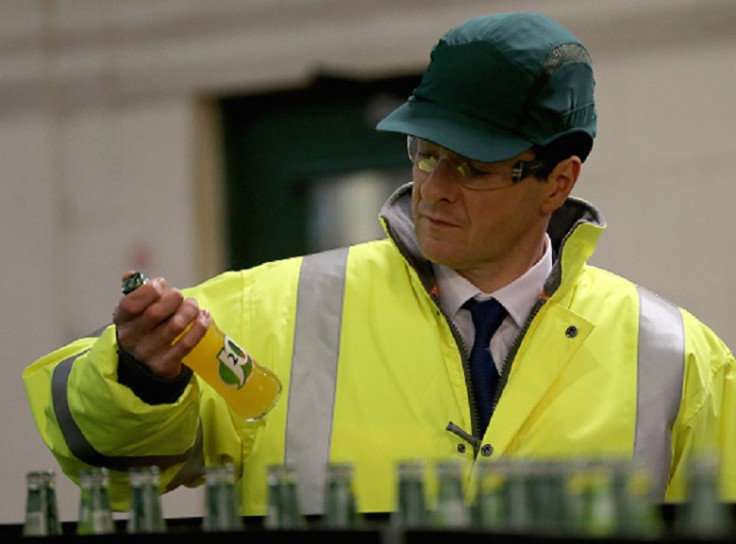Sugar tax: IFS delivers bitter takedown of George Osborne's surprise levy on soft drinks

George Osborne's much talked about sugar tax started to dissolve under scrutiny from the Institute for Fiscal Studies (IFS) on 17 March. The independent think-tank warned the planned levy on soft drinks could perversely encourage more people to consume sugar-laden products.
Paul Johnson, the director of the IFS, claimed consumers could turn to sugary food, such as chocolate, in a bid to satisfy their sweet-teeth once the tax comes into force in 2018. That is because less than a fifth of total sugar consumption comes from fizzy drinks.
The think-tank also warned the complicated nature of the sin tax could see high-sugar drinks actually taxed less. The scathing analysis comes just a day after the chancellor unveiled the surprise sugar tax in his 2016 Budget.
Drinks containing more sugar per 100ml will attract lower tax per gram of sugar #Budget2016 https://t.co/7NXZwCsv08 pic.twitter.com/36kvtryTxc
— IFS (@TheIFS) March 17, 2016
The announcement followed pressure from health campaigners and celebrity chef Jamie Oliver to introduce the levy. Osborne said the measure will help tackle childhood obesity by incentivising soft drink firms to put less sugar in their products.
The Treasury estimated that the tax will raise £520m ($751m) in its first year, £500m in 2019/20 and £455m 2020/21. The government will use the additional money to boost sports in schools and expand breakfast clubs.
Lessons from Finland
But Finland had to scrap a similar levy in 2015 when the European Commission ruled the sugar tax unfairly advantaged the country's producers and the Institute of Economic Affairs (IEA) think-tank warned it would hit the poor hardest.
Chris Snowdon, head of lifestyle economics at the IEA, said: "Lacking any real world evidence that sugar taxes are effective as health measures, campaigners continue to cite findings from crude economic models, which fail to account for the ability of consumers to choose cheaper brands, to shop at cheaper shops and to switch to alternative high-calorie food and drink products.
"It's high time this policy is put to bed. It would hit the poorest the hardest, and the evidence shows it would have little effect on consumption or obesity."
© Copyright IBTimes 2025. All rights reserved.






















